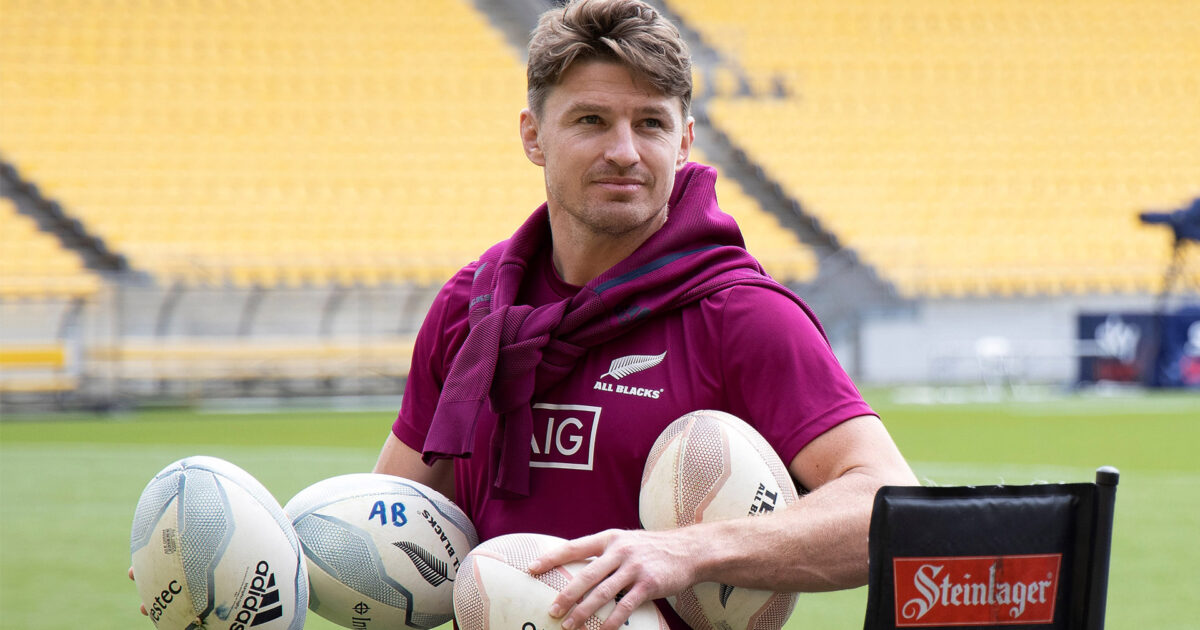'I'm fully confident the medical team will get me where I need to be': Barrett just happy to be back on the park

Touch wood, Beauden Barrett will run out for his first test match of the year on Sunday afternoon.
The flyhalf-cum-fullback was named to start in the 15 jersey in last weekend’s opening match against the Wallabies but an Achilles strain during the captain’s run forced him out of the team. In his place, Damian McKenzie slotted into the side.
This week, Barrett has again been named to play at fullback and, assuming nothing unfortunate happens in the next two days, the former Hurricane will play his first international match since last year’s World Cup.
“It has been a funny year, it’s felt like two years since I’ve played for the All Blacks,” said following Friday’s team naming.
In reality, we’re three weeks short of the one-year anniversary of New Zealand taking out the bronze medal at the showpiece event – but it’s been an incredibly stop-start season for all involved.
Two Barretts are back for the upcoming Bledisloe – but only one of them will start. What has Ian Foster seen in Tupou Vaa'i to keep Scott Barrett on the pine? #AllBlacks #BledisloeCup #NZLvAUShttps://t.co/uMRDc1NtFb
— RugbyPass (@RugbyPass) October 16, 2020
The Achilles strain that kept Barrett out of last week’s draw was nothing new for the 29-year-old. He also had minor issues with his Achilles leading into the World Cup but come the end of the tournament, he was operating at 100%. Still, it’s something that will need to be monitored moving forward.
“It’s about having a plan and I’m fully confident the medical team will get me where I need to be,” Barrett said of the niggle.
Looking to this weekend’s match, Barrett is just happy to be back on the park – and is looking forward to adding some impetus to an All Blacks side that struggled at times to cope with the Wallabies’ kicking game last week.
“On the sideline you see a lot, just like you would have seen,” Barrett said. “We normally go into games after a June season, there was a bit of the unknown. There was a lot of running off the 9, Nic White… there weren’t too many surprises but they played a pretty efficient game and we have to work out how to stop that.”
McKenzie and left wing George Bridge both dropped high balls in the match – though the wind and rain made it difficult for anyone to really gauge where a kick was going to land.
Neither McKenzie nor Bridge will start this week. McKenzie has dropped to the bench and could form a dual playmaking axis with Barrett late in the match while a pectoral injury will sideline Bridge for the remainder of the season. Clarke will take his spot in the 11 jersey.
Regardless, with little rain forecast for Sunday, Barrett should have a much easier time managing Nic White’s well-executed box kicks.
Reassuringly for All Blacks fans, Barrett also confirmed that he’d been practising drop kicks this week – just in case.










































































